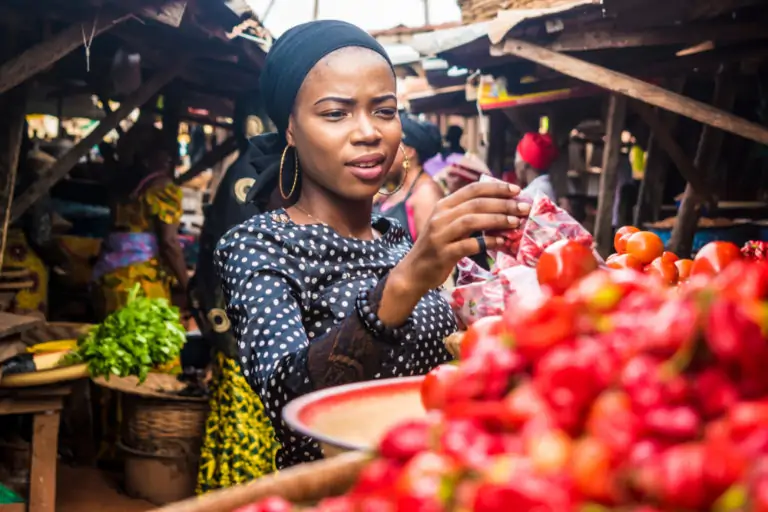Reported as the world’s fastest-growing economy in 2019 by the IMF, Ghana’s agribusiness landscape play a key role in the country’s growth. The region offers considerable development potential, most notably at a domestic level. However, every country brings its own set of unique challenges when it comes to investment and development and Ghana is no different.
Ghana’s Economy
Ghana’s economy is abundant in natural resources. It is primarily market-based, with very few policy barriers to trade compared to other countries in Sub-Saharan Africa. Ghana’s agribusiness sector accounts for a small proportion of GDP (around 19%), but it employs more than a third of the workforce of the country (33.5%) and is dominated by smallholder farmers.
Despite the blossoming economy, Ghana’s GDP per capita is still below many emerging and developing economies such as Brazil, Indonesia, and South Africa.
The unemployment rate is above average compared to other countries in Sub-Saharan Africa. The key economic concern facing Ghana’s government is the gross external debts.
Agriculture in Ghana
Ghana’s agribusiness and food sector are one of the most important sectors of the economy, employing more than half of the population on a direct or indirect basis, and accounting for almost half of GDP and export earnings. According to the Ghana Statistical Service, agriculture grew 5.5% in 2018, outpacing general non-oil GDP growth for the same year.
The domestic agricultural sector is mostly subsistence-based, composed of 74% crop production, 18% livestock, fishery and poultry, and 8% forestry. Smallholder farmers dominate Ghana’s agribusiness landscape; approximately 90% of smallholder farmers in Ghana cultivate less than 1-hectare of land.
There are some large farms and plantations in the country, chiefly for rubber, oil palm and coconut and to a lesser extent for rice, maize and pineapples. Most food crops cultivated are intercropped, and large-scale or commercial farms in the country are a monoculture.
In this report
We outline the challenges and opportunities for Ghana’s agribusiness sector in detail.
- From climate to economy
- Import and export statistics
- Government support
- Market conditions
Expert agribusiness industry analysis
Ghana’s agribusiness sector has emerged as a pivotal component in the nations rapid economic growth, making significant employment and GDP contributions despite challenges like smallholder farmer dominance and external debts.
The vibrant and rapidly growing Ghanaian landscape presents both opportunities and risks to potential investors. Our consultants stand ready to guide businesses and investors through these intricacies and achieve commercial success. Our global network of experts leverages deep sectoral insights and global expertise to unlock Ghana‘s agricultural potential, offering strategic advice on navigating its unique challenges and capitalising on opportunities for growth. Whether you’re looking for actionable market insights, policy and regulation assessments, or advice on government support and funding, Farrelly Mitchell provides the comprehensive services needed to thrive in Ghana‘s agribusiness sector.











